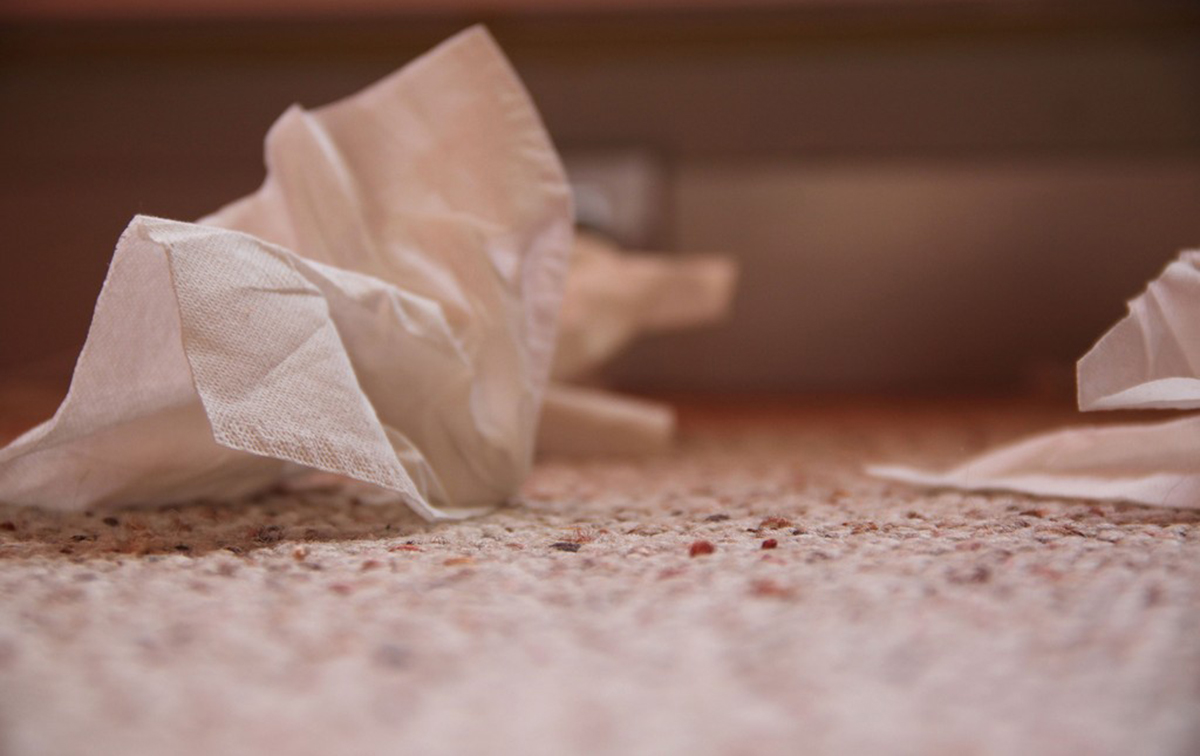Diagnose the Difference Between These Common Upper Respiratory Ailments for Yourself
Knowing the difference between a cold and a sinus infection is important because the two conditions are treated in two different ways. Colds are caused by viruses. They respond to zinc, vitamin C, and temporarily eating more.

Sinus infections are caused by bacteria. They don't respond to zinc and they usually don't respond to vitamin C. They may respond to over the counter non-steroidal anti-inflammatory agents such as Aspirin or Tylenol, or to anti-inflammatory herbs. And while your doctor sometimes can treat a sinus infection with an antibiotics, colds are caused by viruses, and against viruses antibiotics do no good.
Since more people have colds than have sinus infections, let's start with a quick review of colds symptoms. Colds usually cause a cluster of symptoms, including:
- Feeling run down before other symptoms start
- Feeling a "tingling" in the nose before the onset of sneezing
- Frequent sneezing with clear mucus
- Post-nasal drip, watery mucus running down the back of the throat
- Fever, although fever is more common in adults than in children
There are several things you can do to make a cold much less severe provided you take the treatment at the very first sign of symptoms. One is to take zinc. The objective of taking zinc, however, is to get zinc to your nose, not to the rest of your body.
Zinc stops viruses from entering cells they have not yet infected. If you suck on a zinc lozenge, it will release zinc into your saliva, and then your saliva will protect the back of your throat from infection. You may still get a cold in your nose, but it is less likely to "go down" your throat.
Zinc nose sprays protect your nasal passages from widespread infection. A nose spray may help you get over a cold very quickly. If there is even slightest hint of pain in your nose or sinuses when you use a zinc spray, however, stop immediately, and don't use the spray again. When people have suffered loss of their sense of taste or smell after using a nose spray, invariably they ignored the warning signal of pain.
Also, there is a cold remedy that provides zinc with vitamin C in a fizzy drink that soothes your throat as it provides needed nutrients, but it is not Alka-Seltzer. It's Redoxon Vitamin C and Zinc, made by Hoffman-La Roche. Each Vita Immune tablet contains:
- 10 milligrams of zinc
- 1000 milligrams of vitamin C
- 2333 IU of vitamin A
- 6.5 milligrams of vitamin B 6
- 9.6 micrograms of vitamin B12
- 400 IU of vitamin D
- 45 milligrams of vitamin E
- 400 micrograms of folic acid
- 110 micrograms of selenium
- 900 micrograms of copper
- 5 milligrams of iron
Providing the full range of nutrients that fight viral infections, Redoxon has been a tried and trusted over-the-counter colds and flu remedy since 1934. Because the vitamin C in Redoxon is a fizzy combination of ascorbic acid and sodium bicarbonate, the tablets bubble when mixed in water. They make a tingly, soothing beverage that delivers the nutrients that fight colds directly to the tissues that need them most.
What about that old adage about feeding a cold? It can help to eat more carbohydrate and fat—just for a day or two—when you already have colds symptoms. Most of the additional calories are burned off, and your body has to get rid of the additional carbon dioxide. You breathe deeper, and it's easier to sneeze away the mucus lining your nose.
Recognizing the Symptoms of Sinusitis
Sinusitis refers to swelling of the sinuses. Sometimes sinusitis is due to nothing more than low humidity. Extremely dry air dries out the linings of the sinuses causing them to crack. The cracks provide a haven for irritating particles that cause neither infection nor allergy. They just cause inflammation and pain.

Other common symptoms of bacterial sinusitis include:
- Difficulty breathing
- Interrupted sleep
- Snoring
- Difficulty breathing through the nose
- Decreased sense of smell
- Pressure or pain behind the eyes or in the cheeks
- Pain in the top teeth
- Headache
- Stuffy nose, but with green or yellow discharge
- Post-nasal drip, but with green or yellow phlegm
If it seems like you get a cold every month or so twelve months of the year, chances are you don't get colds, you have chronic sinusitis. Acute sinusitis lasts up to four weeks. Chronic sinusitis often lasts as long as 12 weeks. And if you get some kind of upper respiratory infection every month for a year or more, your probably have recurrent bacterial sinusitis.
The treatments that work for colds don't necessarily work for sinusitis. One of the most important things you can do for sinusitis is to keep the air in your home moist. This may mean turning down forced-air heaters, if you are using them, or using a vaporizer any time of year the air in your home is unusually dry.
Another treatment for sinus problems that works is a neti pot. You pour water in one nostril and it flows out the other, carrying mucus, dust, pollen, and dirt away with it. It's best to use warm—never hot!--salt water in your neti pot, and don't swallow.
If you are not comfortable using a neti pot, try nasal sprays of saline solution. The salt water loosens dry crusts of mucus and makes them easier to expel. The thing to look out for with "natural" nose sprays is ingredients that are not natural. Some of the problem ingredients you may see on the label for "natural" nose spray include:
- Thimerosal (which may be familiar to you as the additive to vaccines implicated in autism)
- Sodium silicoaluminate
- Providone
- Potassium phosphate
- Phenylcarbinol
- Iodine (not in a form or amount that prevents radiation exposure, but in a dosage that cause nasal inflammation)
- Edetate disodium
- Disodium ETA
- Dibasic sodium phosphate
- Benzyl alcohol
- Benzalkonium
There may also be essential oils and even flavoring agents that dry out your sinuses and make inflammation worse. If you make your own salt water solution for a spray or neti pot, make sure not to use "pickling salt" that may contain aluminum compounds that damage the nerves for your sense of smell.
It's always better to use a saline solution than a steroid-based decongestant spray. It is possible to become dependent on prescription nose sprays, so that if you ever stop, your symptoms will be even worse than before you started using the product. Some people get hooked on nose spray and only quit when they have to have surgery to repair damage to the septum dividing the nasal passages or to open the sinus cavities themselves. Natural nose care is always the best care, unless you get regular attention from your doctor.
- Varricchio A, Avvisati F, Varricchio AM, Tortoriello G, Ciprandi G. The nose and paranasal sinuses. Int J Immunopathol Pharmacol. 2010 Jan-Mar, 23(1 Suppl):1-3. Review.
- Photo courtesy of findingtheobvious by Flickr : www.flickr.com/photos/micahrr/5386083144/

